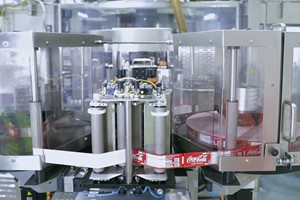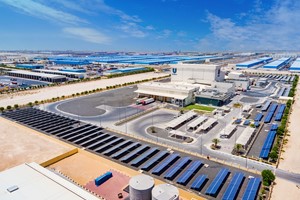In recent years, concerns over food safety, quality, and sustainability have become increasingly prevalent among consumers, regulators, and industry stakeholders. Traditional methods of tracking and managing the food supply chain have often fallen short, leaving gaps in transparency and accountability. However, the emergence of blockchain technology offers a promising solution to these challenges, with its ability to provide increased transparency, traceability, and efficiency throughout the entire food supply chain.
Tracking Food Origins and Movement
One of the primary applications of blockchain in the food industry is the ability to track the origins and movement of food products from farm to fork. By recording crucial information such as farming practices, environmental conditions, and handling procedures on a secure and immutable ledger, blockchain ensures that this data is readily accessible to consumers, retailers, and regulators.
Farmers can input data regarding their agricultural practices, including soil quality, irrigation methods, and pesticide usage, allowing consumers to make more informed choices about the products they purchase. Additionally, the use of RFID tags or sensors enables real-time monitoring of food items throughout the supply chain, providing valuable insights into their location, temperature, and other environmental factors.
In the event of a foodborne illness outbreak, blockchain technology can play a crucial role in quickly identifying contaminated batches and their distribution pathways. By leveraging the transparency and traceability offered by blockchain, stakeholders can expedite the recall process, minimizing consumer exposure to potentially harmful products.
Improved Food Recall and Safety Management
Traditional methods of managing food recalls often involve manual processes and fragmented data systems, leading to delays and inefficiencies. Blockchain streamlines this process by enabling automated safety protocols based on real-time data from sensors. For example, deviations in temperature or pH levels can trigger alerts, indicating potential spoilage or contamination, allowing for swift intervention to mitigate risks to public health.
Moreover, blockchain facilitates enhanced collaboration and communication among supply chain partners, enabling faster and more efficient responses to food safety incidents. By providing a transparent and auditable record of transactions and interactions, blockchain instills greater trust and confidence in the safety and integrity of the food supply chain.
Enhanced Food Quality and Sustainability
Beyond safety and traceability, blockchain technology also holds the potential to improve food quality and promote sustainability initiatives within the industry. By enabling the tracking of organic or ethically sourced food products, blockchain helps prevent fraud and ensure compliance with regulatory standards.
Consumers increasingly seek information about the environmental impact of their food choices, including factors such as carbon footprint, water usage, and biodiversity conservation. Blockchain empowers consumers to make more informed decisions by providing detailed insights into the sustainability practices employed throughout the supply chain.
Current Implementation of Blockchain in Food Safety
Blockchain technology is proving to be a valuable tool in addressing foodborne illness outbreaks by enabling efficient identification of contamination sources and swift containment measures. In the event of a salmonella outbreak in a specific region, authorities leverage IBM Food Trust to trace the tainted food back to its origin, typically a farm. Through meticulous data analysis facilitated by blockchain records, every entity involved in the supply chain, from suppliers to distributors and retailers, is identified, shedding light on the path of the contaminated product. Armed with this information, targeted recalls can be initiated promptly, curbing further dissemination of the illness. The utilization of blockchain in such scenarios yields numerous benefits, including expedited response times, minimized food waste, and ultimately, enhanced public health outcomes.
Moreover, blockchain technology holds promise in ensuring the authenticity of food products, particularly in validating claims such as organic certification. With platforms like Provenance, the journey of food items, such as organic chicken, can be meticulously tracked from their inception to their placement on store shelves. Sensors integrated into the production process monitor crucial factors like feed quality, living conditions, and slaughter procedures, with all relevant data securely recorded on the blockchain. This transparent system empowers consumers to verify the authenticity of food claims by simply scanning a QR code on the product packaging, granting them insight into the entire production chain and confirming its organic status while also ensuring ethical treatment of the animals involved.
Potential Challenges
As is with any technology, several challenges rise, and food safety is a complex industry, which raises complex challenges that need to be addressed in order to safely and effectively implement blockchain in the food industry.
From a technical perspective, scalability emerges as a primary concern. The sprawling complexity of global food supply chains generates vast amounts of data, placing significant strain on existing blockchain infrastructures. To effectively handle this data deluge, robust and scalable solutions are imperative.
Moreover, interoperability presents another technical hurdle. The diverse array of blockchain platforms and standards leads to compatibility issues, complicating the seamless integration of disparate systems throughout the supply chain.
Ensuring data quality and integrity is paramount. The accuracy and reliability of information entering the blockchain ecosystem are pivotal for maintaining transparency and trust. Weak data validation processes or intentional manipulation pose substantial risks to the credibility of the entire system.
Operational and regulatory challenges further complicate blockchain adoption. The initial investments required for implementing blockchain technology, including new infrastructure and personnel training, can pose financial burdens, particularly for smaller entities within the food industry.
Uncertainty surrounding regulatory frameworks adds another layer of complexity. Without clear guidelines and standardized protocols, businesses may hesitate to fully embrace blockchain solutions, fearing legal repercussions or compliance issues.
Resistance to change within the industry represents a significant barrier. Traditional mindsets and entrenched operating procedures may impede the adoption of blockchain technology, slowing down its integration into mainstream practices.
foodHQ Staff














